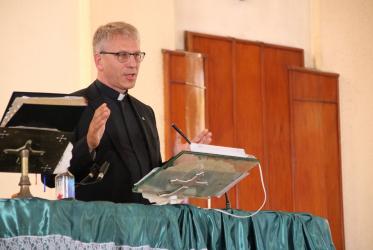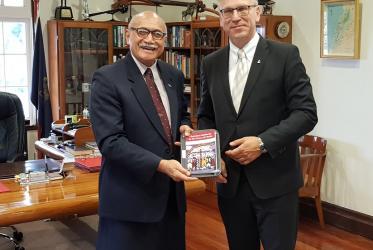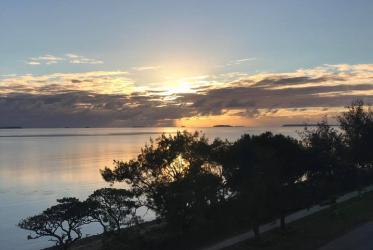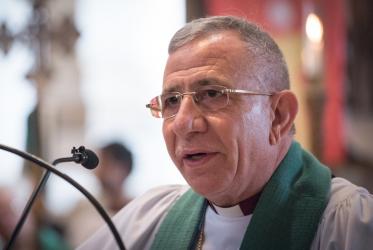Displaying 121 - 140 of 228
In Fiji, “time to go beyond the reef”
14 August 2017
Hopes shared in Tonga, where dawn starts first
06 August 2017
G7 must address famine
22 May 2017
Women’s mentoring focus of Thailand gathering
23 April 2017
“Overcoming economic injustice” vision of WCC’s Athena Peralta
23 February 2017
Bishop Younan awarded Niwano Peace Prize
22 February 2017
WCC offers condolences upon death of Anglican Archbishop Turei
13 January 2017
WCC mourns the death of Polynesian nuclear fighter John Doom
28 December 2016










